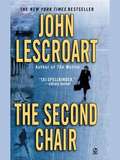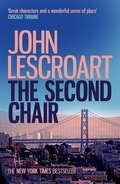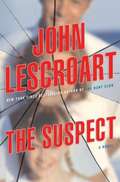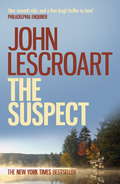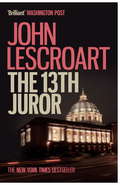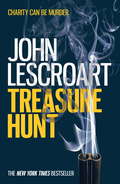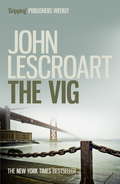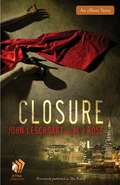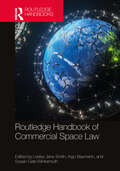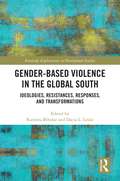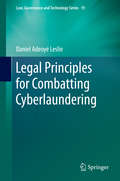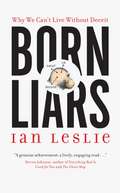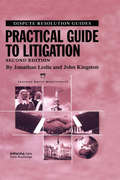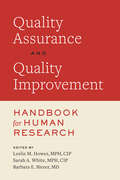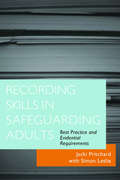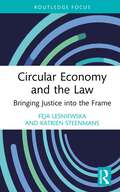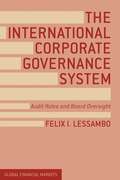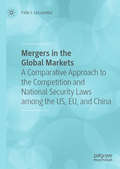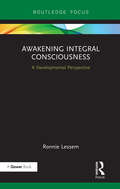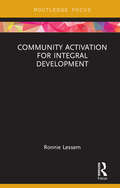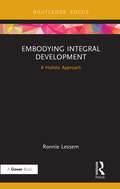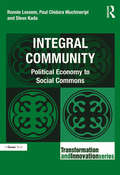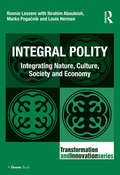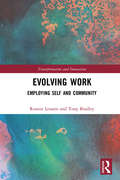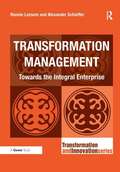- Table View
- List View
The Second Chair
by John LescroartIn the latest of his acclaimed novels featuring Dismas Hardy, John Lescroart skillfully and subtly weaves together a story of a privileged youth on trial for murder, and an entire city on the brink of panic, taking this popular series to new heights of stylish suspense.
The Second Chair: A courtroom thriller (Dismas Hardy #No. 10)
by John LescroartSan Francisco is a city on the brink of panic...John Lescroart skilfully and subtly weaves together a story of a privileged youth on trial for murder, and an entire city on the brink of panic, taking this popular series to new heights of stylish suspense. Perfect for fans of Lee Child and John Sandford. 'Lescroart plays out clues with the patience and cunning of a master fly fisherman' - Orlando SentinelTo the outside world, it looks like Dismas Hardy is finally on top. A managing partner at his thriving law firm but beneath the surface bravado, Hardy has lost his faith in the law. Now he has a high-profile and challenging case: a seventeen-year-old arrested for the double slaying of his girlfriend and his English teacher. As the case moves swiftly to trial, Hardy can't even turn to his old friend Abe Glitsky for help. San Francisco has been seized by a wave of violence and an embattled Glitsky must somehow stop the criminal upsurge while being hounded by a hostile media. With the city on the verge of panic, Hardy's search for the truth takes him down a perilous path. With very little belief in his young client's innocence, and even less in the legal system, Hardy has to conquer his own demons if he is to clear his client... and save himself.What readers are saying about The Second Chair:'Once again, Lescroart proves he is the master of this genre''The Second Chair is second to none''John Lescroart weaves a tangled web of suspense back and forth with thick intensity'
The Suspect (Dismas Hardy #11)
by John LescroartWhen a marriage headed for divorce ends in homicide, no alibi can clear the surviving spouse. But the right attorney just might...
The Suspect: A dark and gripping murder mystery (Ditmas Hardy Ser.)
by John LescroartInnocence is no guarantee of justice...John Lescroart, bestselling author of the Dismas Hardy series, returns with a gripping standalone murder mystery, The Suspect. Perfect for fans of John Grisham and Steve Martini. 'One smooth ride, and a fine legal thriller to boot' - Philadelphia Enquirer Dr. Caryn Dryden is found dead in her hot tub, and homicide inspector Devin Juhle targets a suspect close to home: her husband, Stuart Gorman. After all, Caryn recently asked for a divorce ... and Stuart stands to gain millions in insurance. His alibi-that he was at his cabin on Echo Lake that weekend-doesn't keep him out of hot water. But maybe a shrewd attorney will. Gina Roake, a partner in Dismas Hardy's firm, is eager to take on such a high-profile case, especially when the client's innocence seems so easy to prove. Yet the more time she spends with Stuart, the more complicated her feelings become; she feels strangely drawn to him at first, then has to confront the possibility of a dark history lurking in his past. Desperate to know the truth, Gina calls in Wyatt Hunt to investigate. But as the damning facts accumulate, and as the rabid press concludes that Stuart is guilty, Gina must face the possibility that Stuart may not find mercy in the courtroom either.
The Thirteenth Juror: An unputdownable thriller of violence, betrayal and lies (Dismas Hardy)
by John LescroartHe is obsessed with her innocence. He will be destroyed by her guilt...John Lescroart writes a gripping courtroom thriller delving deep into the life and mind of the suspect in The Thirteenth Juror, the fourth novel in the Dismas Hardy series. Perfect for fans of J.J. Miller and John Sandford. 'I double-dare you to begin reading John T. Lescroart's new suspense trial novel and put it down... This one is on the money' - Larry King, USA TodayDismas Hardy, lawyer/investigator, undertakes the defence of Jennifer Witt, accused of murdering her husband and their eight-year-old son as well as her first husband, who had died nine years earlier from an apparent drug overdose. While preparing his case, Hardy learns that both of Jennifer's husbands had physically abused her. But Jennifer refuses to allow a defence that presumes her guilt. She is not guilty, she claims. Hardy is now driven to seek an alternative truth a jury can believe. As the trial progresses, the complex truth itself begins to change, to bend, to fade in and out of focus as the clock keeps ticking on Jennifer's fate, until there seems only one person left to convince, and she is 'the 13th juror' - the judge. The 13th Juror is a stunning and suspenseful novel of moral ambiguity, of good intentions, bad judgements and the tortuous path to ultimate justice.What readers are saying about The Thirteenth Juror:'Intricate, multi-layered story that goes way beyond the basics''It was hard to put this book down!''Keeps you on the edge of your seat until the end'
Treasure Hunt (Wyatt Hunt, book 2): A riveting crime thriller with unexpected twists
by John LescroartCharity can be murder...Wyatt Hunt - hero of John Lescroart's New York Times bestseller The Hunt Club - returns in an intricate, tightly plotted thriller set against San Francisco's glamorous charity circuit. Perfect for fans of Michael Connelly and Lee Child. 'Breath-taking' - LA Times When Mickey Dade discovers the body of Dominic Como, he sees this as his chance to prove himself. He's been stuck behind a desk at Wyatt Hunt's private investigative service, The Hunt Club, but now seizes the opportunity to work on a real case. Como was one of San Francisco's most high-profile fundraisers and one suspect in the case is Como's business associate, Alicia Thorpe - young, gorgeous, and the sister of one of Mickey's friends. As Mickey and Hunt are pulled into the case, they soon learn that Como was involved in some highly suspect deals. And the lovely Alicia knows more about this - and more about Como - than she's letting on. As the case reaches its nail-biting conclusion, Mickey Dade finds his world crumbling around him as he learns the hard lessons Hunt knows only too well.What readers are saying about Treasure Hunt:'One of his [John Lescroart's] most complex, riveting and entertaining works to date''I was kept guessing until the very end''He [John Lescroart] keeps you interested from page one right to the end of the book'
The Vig: A gripping crime thriller full of twists (Dismas Hardy)
by John LescroartThe later you pay, the steeper the price... Dismas Hardy returns in The Vig, the second instalment in John Lescroart's stirring series. Perfect for fans of Michael Connelly and Scott Turow.'The plot twists and turns...Hardy is one of the more real and engaging characters in... crime solving' - Los Angeles Times Payback is murder.A beautiful woman paid it with her body. A seedy lawyer used somebody else's money. It's the vig - the exorbitant interest mob loan sharks take on their money. Now everyone has to pay... Down-and-out lawyer Rusty Ingraham left behind a murdered woman and a houseboat splattered with blood. All the evidence said Ingraham was in San Francisco Bay. Dead. But a friend of Ingraham's, former cop and prosecutor Dismas Hardy, isn't so sure. And Hardy has to find out, because a stone-cold killer, now paroled, once threatened to kill Ingraham and Dismas Hardy both. To save his own skin, Hardy must face down liars and killers on both sides of the law. From mob foot soldiers to broken-hearted lovers to renegade cops, a dozen lives are tied to the fate of Rusty Ingraham - and the payback has only just begun.What readers are saying about John Lescroart:'[John Lescroart] develops characters and storylines like no other author I have read''Lescroart is a very talented and imaginative crime writer''I am never disappointed by any books from John Lescroart'
Closure
by John Lescroart M. J. RoseFrom two bestselling masters of suspense, a gripping, erotic story about a female assassin whose unsettling past comes back to haunt her...Beautiful twenty-something Lucy Delray has spent two months in therapy when she says to her psychologist, "When I destroy someone...I don't feel anything." An avenging angel who lures men into her bed and then kills them, she qualifies this shocking confession: "I only kill men who deserve it. Who have done the unforgivable. Who need to be punished." But when Lucy lures an influential man from her childhood back into her life--a painter she befriended when she was only seven years old--the charming temptress may be committing the ultimate crime: letting a long-buried secret interfere with the job at hand...
Routledge Handbook of Commercial Space Law (Routledge Handbooks in Law)
by Lesley Jane Smith, Ingo Baumann, and Susan-Gale WintermuthThe Routledge Handbook of Commercial Space Law provides a definitive survey of the transitions and adjustments across the stakeholder community contributing to outer space activities. The interaction between NewSpace, traditional aerospace industrials, and non-traditional space-related technologies is driving market changes which will affect state practice in what has until now been a government dominated market. Greater private commercial participation will lead to new economic approaches to risk-sharing models driven by a space services dominated market. This handbook is a detailed reference source of original articles which analyse and critically evaluate the scope of the current paradigm change, and explain why space contracts and risk apportionment as currently known will change in tune with ongoing market transitions. Reference is made to the scope of best practices across various leading states involved in space activities. With contributions from a selection of highly regarded and leading scholars and practitioners in the Commercial Space Law field, and the inclusion of salient documents, regulatory and contractual documents, the Routledge Handbook of Commercial Space Law is an essential resource for students, scholars, and practitioners who are interested in the field of Commercial Space Law.
Gender-Based Violence in the Global South: Ideologies, Resistances, Responses, and Transformations (Routledge Explorations in Development Studies)
by Dacia L. LeslieThis book amplifies the different voices and experiences of those facing gender-based violence (GBV) in the Global South. It explores the localised ways in which marginalised individuals design modes of coping with and address GBV, including cultural interpretations, and artistic and faith-based expressions.The book examines GBV triggers, prevalence, and societal impacts while referring to community, national, and regional mobilisation to deal with the phenomenon in its various manifestations, including physical, psychological, political, domestic, and public violence. It explores issues related to women’s negotiations with the patriarchal underpinnings of GBV; the role of the law and history in the perpetuation of GBV; the complementary role of culture and faith to legal protection against GBV, and access to justice for women and girls. In doing so, the book exposes understandings and expressions of GBV, as well as methodologies and indigenous initiatives to prevent it through local viable solutions. The book thus challenges the normalisation of GBV in the Global South.Providing concrete and culturally relevant suggestions for challenging ingrained models of gender understandings of violence in the Global South, this book will be of interest to academics in the fields of Development Studies, Gender Studies, Women’s Studies, Violence and Abuse Studies, Human Rights, Criminal Law, and Socio-Legal Studies.
Legal Principles for Combatting Cyberlaundering
by Daniel Adeoyé LeslieThis volume deals with the very novel issue of cyber laundering. The book investigates the problem of cyber laundering legally and sets out why it is of a grave legal concern locally and internationally. The book looks at the current state of laws and how they do not fully come to grips with the problem. As a growing practice in these modern times, and manifesting through technological innovations, cyber laundering is the birth child of money laundering and cybercrime. It concerns how the internet is used for 'washing' illicit proceeds of crime. In addition to exploring the meaning and ambits of the problem with concrete real-life examples, more importantly, a substantial part of the work innovates ways in which the dilemma can be curbed legally. This volume delves into a very grey area of law, daring a yet unthreaded territory and scouring undiscovered paths where money laundering, cybercrime, information technology and international law converge. In addition to unearthing such complexity, the hallmark of this book is in the innovative solutions and dynamic remedies it postulates.
Born Liars: Why We Can't Live Without Deceit
by Ian LeslieLying is an intrinsic part of our social fabric, but it is also a deeply problematic and misunderstood aspect of what makes us human. Ian Leslie takes us on a fascinating journey that makes us question not only our own relationship to the truth, but also virtually every daily encounter we have. On the way he dissects the history of the lie detector, how parents affect their children’s attitude to lying (and vice versa), Who Wants to Be a Millionaire?, the philosophical ambiguity of telling the truth, Bill Clinton’s presentational prowess, Wonder Woman’s lasso of truth, and why we should be wary of anyone with more than 150 Facebook friends. Born Liars is thought-provoking, anecdotally driven narrative nonfiction at its best. Ian Leslie’s intoxicating blend of anthropology, biology, cultural history, philosophy, and popular psychology belies a serious central message: that humans have evolved and thrived in large part because of their ability to deceive.
Practical Guide to Litigation
by Jonathan Leslie John KingstonAgainst the background of Lord Woolf's interim report "Access to Justice", this text includes accounts of tactical matters and practical litigation "tips", as well as descriptions of the procedures involved. Litigation is often conducted by companies who do not have much practical experience of the processes that might be expected of them. The same applies to others who become involved in litigation without actually having to conduct the procudure as lawyers. This book is intended to give a brief, clear and comprehensive overview of litigation, arbitration and ADR in England. Intended as a comprehensive overview of litigation, arbitration and ADR in England, this guide is aimed at clients and firms who are involved in, or assist cases, who would like to understand the process better in a non-technical way but do not want to see every statement supported by authority.
Quality Assurance and Quality Improvement Handbook for Human Research
by Leslie M. Howes, Sarah A. WhiteHelping human research protection program professionals create, implement, and evaluate quality assurance/quality improvement programs.Quality Assurance and Quality Improvement Handbook for Human Research is the first comprehensively designed instructional manual aimed at teaching human research protection program (HRPP) professionals how to create, implement, evaluate, and improve QA/QI programs. Geared toward institutions and individuals responsible for establishing new QA/QI programs or functions, the book offers several organizational models for consideration. It also provides practical information for improving and strengthening established programs, both big and small.Written in a conversational style, the book's step-by-step instructions make it easily accessible to those who may not be well versed in QA/QI concepts and fundamentals. Developed by the QA/QI Subcommittee of the Harvard Catalyst Regulatory Foundations, Ethics, and Law Program, which is committed to designing and strengthening QA/QI programs and functions, this volume• includes contributions by fifteen experts with diverse professional experiences from varied organizations • is enhanced with flow charts, examples, sample forms, and templates• incorporates model slide presentations and instructional materials• discusses the respective benefits and challenges of different organizational models• is applicable across many organizational types with a variety of reporting structures and available resources, including academic and medical institutionsPerfect for both seasoned personnel and newcomers to the field, Quality Assurance and Quality Improvement Handbook for Human Research is a needed resource for ensuring investigative accountability.Contributors: Hila Bernstein, MS, MPH, Barbara E. Bierer, MD, Elizabeth Bowie, JD, MPH, MSc, Susan Corl, MSW, MPH, CIP, CCRP, Jacquelyn-My Do, MPH, Lisa Gabel, CIP, Alyssa Gateman, MPH, CCRP, Jennifer A. Graf, Nareg D. Grigorian, Leslie M. Howes, MPH, CIP, Jennifer Hutchinson, CIP, CPIA, Cynthia Monahan, MBA, CIP, Eunice Newbert, MPH, Sarah A. White, MPH, CIP, Elizabeth Witte, MFA
Recording Skills in Safeguarding Adults
by Simon Leslie Jacki PritchardRecording Skills in Safeguarding Adults is the comprehensive guide to keeping accurate, effective and complete records in safeguarding adults work. This book explains why good record-keeping is essential: it covers crucial skills in recording, including how to write effectively; evidential requirements when writing statements and reports for court; and minute-taking. The book includes best practice points, exercises and examples of good recording. Each chapter also features informative, anecdotal experiences and comments from experts in safeguarding adults work, including police and lawyers, on what is needed in written records and how to present evidence clearly and persuasively. This book is essential reading for all safeguarding adults practitioners who are required to keep records, including social workers, probation officers, nurses, support workers, residential and day care staff, volunteers and advocates.
Circular Economy and the Law: Bringing Justice into the Frame (Routledge Focus on Environment and Sustainability)
by Feja Lesniewska Katrien SteenmansThis book explores the role of law and policy in circular economy transitions and their impacts on justice, including on distributional equity and recognition and procedural rights, especially for people already marginalised under the current dominant economic system. Amid increasing demand for virgin raw materials, and unsustainable consumption and waste disposal that are driving the global ecological and climate crisis, there are growing calls to urgently transition to circular economies. Despite an increasing number of circular approaches being adopted, implemented, and integrated in national and local laws and policies, the number of commercially successful business stories remains isolated. Moreover, questions about whether circular economy laws and policies are delivering fair and just global outcomes need to be addressed. This book examines this significant knowledge gap to understand legal experiences, including justice and equity issues in the global context, so that these can inform wider design and implementation. The book begins by explaining the concept of a circular economy and its context within wider issues of sustainable development and justice. The first part of the book then examines the legal context of the circular economy by analysing legal forms in practice and those recommended in wider scholarship before considering how these could impact on existing inequity and injustices globally. The second part delivers an empirical understanding of the implications of the law on circular economy approaches and the global equity and justice dimensions through two case studies on solid waste management and forestry. The final part addresses legal opportunities and challenges for wider implementation of circular economy approaches that incorporate justice into its framing. This book will be of great interest to students, scholars, and practitioners of environmental and natural resource law and policy, circular economy, industrial ecology, natural resource management, and sustainable development more broadly.
The International Corporate Governance System
by Felix I. LessamboThis book provides a comprehensive approach to Corporate Governance, Audit Process and Risk Management. Furthermore, it provides an analytical and comprehensive approach of the issues facing governance directors, internal and external auditors, risk managers, and public officials conducting assessments based upon the Report on Standards and Codes.
Mergers in the Global Markets: A Comparative Approach to the Competition and National Security Laws among the US, EU, and China
by Felix I. LessamboInternational mergers and acquisitions play a vital role behind the growth of a company. This book explores the hurdles involved and how to navigate through the review processes set up by national regulatory agencies such as the US Committee on Foreign Investment (CFIUS), the EU Commission, and the Anti-Monopoly Bureau of State Administration of Market Regulation of China (AMB). This book is unique and showcases how to anticipate, develop, and implement successful strategies to support mergers and acquisitions activities, particularly of interest to finance and law students, researchers, and academics.
Awakening Integral Consciousness: A Developmental Perspective (Transformation and Innovation)
by Ronnie LessemThis is the second of four volumes in the CARE-ing for Integral Development series, focused on CARE: Community activation, Awakening consciousness, innovation driven institutionalized Research and transformative Education. In this book, the author focuses on ways and means of developing, in an explicitly integral way, a particular organization or society, one in relation to another, locally-globally, building on prior, local community activation. He draws on two decades of experience and illustrates how such an awakening of integral consciousness can run alongside innovation driven institutionalized research and transformative education, as well as community activation, at undergraduate and post-graduate levels. In the process he addresses such topics as how to embed development in a particular society locally, how in relation to the rest of the world globally, as well as how to consciously evolve as an individual, organization or society, as such, from one particular developmental perspective – southern (relational), eastern (renewal) or north/western (reasoned/realization) – or another. The overall integral approach, or rhythm that the author draws upon, and has used in the field for the past decade, is that of recognizing and releasing what he terms GENE-ius, through local Grounding, local-global Emergence, newly global Navigation and ultimately global-local Effect, encompassing nature, culture, technology and enterprise. Moreover, he offers a body of integral theory that has been developed in twelve separate volumes, related to different aspects of integral development. This book on awakening integral and developmental consciousness – from an African, Asian or Euro/American perspective – is unique. Moreover, and specifically as such, the author offers an alternately relational ("southern"), renewal ("eastern") and reasoned ("north-western") perspective on such development.
Community Activation for Integral Development (Transformation and Innovation)
by Ronnie LessemAs mass global and social media communications spread across the globe, we are seeing a need for a change in the way we approach issues of political and economic development. The effects of these growing communications are that, on the one hand, we see the significance of place rising, while on the other, marginalized people clamour to be heard and identities become increasingly threatened. We are quickly realizing that a ‘one-size fits all’ approach is not going to work. Despite more than half a century of attempts to address issues of development, we have seen fairly bleak results. In fact, the rising of economic stars, such as Japan and the Pacific Tigers hitherto, and China and India of late, have little to do with such programs of development or cultural studies, notwithstanding their accomplishment. Typically, such successes have developed top-down, with theories born and bred in the ‘West’ affecting,or maligning, practices in the ‘rest’. The approach taken in this book looks at these developments by turning them on their head: instead, starting bottom-up with an emphasis on what the author terms ‘community activation’. With a selection of case studies, this volume looks at where community activation can be found and explores how it could evolve and be of use in developing societies at large. In the process, he addresses such topics as how to embed development in a particular society, how to generate social and economic solidarity, and how to generate wealth from pre-industrial and post-industrial networks. This book provides a guide for readers on how to build community within their organization-and-society from the ground up.
Embodying Integral Development: A Holistic Approach (Transformation and Innovation)
by Ronnie LessemIn this fourth and final volume of the CARE-ing for Integral Development series, Ronnie Lessem integrates all that has come before in terms of: Community activation; Awakening integral consciousness; and institutionalized Research. Here he focuses on individual and community development alongside that of the organization or society, and sets it in the context of an integral economy. The four critical success factors identified in recognizing and releasing integral development aligned with CARE are: GROUNDING – linking up with and building upon existing local and global movements for socio-economic development; EMERGENCE – maintaining interconnected focus; NAVIGATING – locating and developing GENE-ius in a particular community/society; EFFECTING – committing to resolving an issue and identifying the most fertile development path. Embodying Integral Development offers a comprehensive system of accreditation. Supported by examples and illustrations of CARE, this book makes a case for Integral Development as a whole. It argues that it is a qualitative means of self-assessment rather than a quantitative one, focused on engagement, immersion and interpretation, as well as evaluation, rather than empirical verification.
Integral Community: Political Economy to Social Commons (Transformation and Innovation)
by Ronnie LessemIntegral Community moves the transformation journey for enterprises and society on from the stages covered in earlier books in Gower's Transformation and Innovation Series, which describe a new macro-economic framework and which have examined alternative development with different local communities, bringing wide cultural perspectives to practical implementation of authentic or integral development. Here, the authors argue that there are two major fields of force prevailing in today's world. The one reflects our common heritage, whereby East and West, North and South are coming ever closer together - the global commons. The other reflects local and national singularity, where the notion of feeding off ancient local heritage and talent is key. They also identify four different culturally laden worldviews as Southern - humanistic, Eastern - holistic, Northern - rational, and Western - pragmatic. The enterprise and social innovation in Africa with which Lessem's co-authors are involved provides an object lesson in the sort of differentiation and integration needed in order to operate, socio-economically, with local identity and global integrity. It provides in this case a 'Southern' worldview background against which to examine communally based self-sufficiency; culturally based developmental economy; knowledge based social economy; and finally, the move towards what the authors describe as a living economy. All illustrated through a rural case, Chinyika, with which they have been intimately involved, whereby 100,000 have become self sufficient over the past five years. Integral Community should be read by academics and students of business, economics, development studies and agriculture, and by policy makers, particularly those concerned with the developing world in general and Africa in particular.
Integral Polity: Integrating Nature, Culture, Society and Economy (Transformation and Innovation)
by Ronnie Lessem Ibrahim Abouleish Louis HermanReleasing the genius of an individual, an enterprise and a society is a central pre-occupation of the contemporary business environment. A fascinating approach to how we can begin to tackle this challenge is presented by the authors of Integral Polity. Integral spirituality, integral philosophy and the integral age, at an overall or holistic level of consciousness, has therefore become a strong enough idea to form the genesis of a movement over the course of the last half century. Taking as a starting point the ground-breaking work of the Trans4m Centre for Integral Development this book applies such an ’integral’ notion to the realms of business, economics and enterprise. To be successful, an integral approach must recognise the nuances of its environment - an integral approach in India is different from that in Indonesia, or Iceland, and they may in fact complement rather than conflict. Therefore this book also provides a fascinating alignment of such ’integrality’ with, and between different ’southern’ and ’eastern’, ’northern’ and ’western’ worlds. Using case studies ranging across the globe this review of a newly integral theory and practice provides a new lease of life to what may increasingly be perceived as the self-seeking, insulated and occasionally violent and corrupt, realm of the political.
Evolving Work: Employing Self and Community (Transformation and Innovation)
by Ronnie Lessem Tony BradleyThe idea of Self and the authenticity of particular identities have been rapidly dissolving in the acids of post-modern globalising capitalism. The hegemony of patterns of work, wage-labor and the operation of labour markets in the American West (and European North) has ridden rough-shod over distinctive ways of enabling communities to flourish in many parts of the Southern and Eastern worlds (Global South). But, this is not inevitable. Indeed, as this book indicates, there are many practical examples across the globe – that connect with some of the most significant theoretical challenges to the operation of dehumanising work – which reveal that a profound reversal is taking place. As such, the core theme of this book is to show that a movement is occurring whereby self-employment can be transformed into communal work that employs the Self in ways that release the authentic vocations of people, individually and collectively. The approach taken in these chapters traverses the globe, utilising the original ‘integral worlds’ model that will be familiar to students of the Trans4M/Routledge Transformation and Innovation series, developed over more than a decade. Such a standpoint points the way to the release of particular social and economic cultures in each of what we term the four "realities" or "worldviews" of South, East, North and Western worlds. In this book we use the methodology of GENEalogy – identifying the realms associated with each world – to show how the rhythms, that is Grounding, Emergence, Navigation and Effect, of each is leading to greater economic, social and spiritual freedom for individuals, organisations, communities and, indeed, entire societies.
Transformation Management: Towards The Integral Enterprise
by Ronnie Lessem Alexander SchiefferTransformation management, argue the authors of this inspirational book, now provides the opportunity for the application of the first significant world-wide innovation in the way we manage since Drucker put management itself on the map in the 1950s. In a book that draws on seminal theses and practical examples from the four corners of the world, Ronnie Lessem and Alexander Schieffer provide leaders, students of leadership, managers and change agents with a trans-culturally tested, integrated approach to leadership and management.
